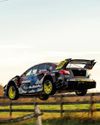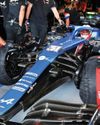
In the previous article (December, V29N12) we discussed the importance of objective decision making in the world of Balance of Performance. Without objective decision making, the decisions become overly political or devolve into guessing. Either way, you are bound to annoy a lot of people.
Now that we understand how critical being objective is, we need to understand more about the scope of the problem we are trying to solve. So, in this article we will first discuss some of the things that are helpful for BoP and then some of the things that make BoP difficult. The list of helpful things pales in comparison to the list of difficult things.
When it comes to helping the BoP process – to make objective decision making easier – there is only one place to start, and that is with design and set-up parameters that have first-order effects on vehicle performance. In this respect I am referring to two things: the overall design philosophy for a vehicle, and the tyres. The FIA has helped to greatly decrease the variability between the as-designed performance of cars by defining homologation regulations and expected performance windows. These performance windows were created to help manufacturers design cars that will be competitive with other cars in the same class of racing straight out of the box.
This story is from the March 2020 edition of Racecar Engineering.
Start your 7-day Magzter GOLD free trial to access thousands of curated premium stories, and 9,000+ magazines and newspapers.
Already a subscriber ? Sign In
This story is from the March 2020 edition of Racecar Engineering.
Start your 7-day Magzter GOLD free trial to access thousands of curated premium stories, and 9,000+ magazines and newspapers.
Already a subscriber? Sign In
Talk the torque
More thoughts on in-wheel motors and their effects on twisting force
Rolling about
An explanation of the limitations of a previous load transfer article, bringing jacking forces into the mix
F1 breaks schedule records
The FIA has confirmed no fewer than 23 races on the 2022 Formula 1 World Championship schedule, the highest number of grands prix ever to be held in a single season, and that has led to criticism from some teams that will be on the road for eight months.

Under pressure
Toyota may have finished first and second at Le Mans this year, but the effort required to overcome a fuel delivery problem and finish with both cars was Herculean
Physics at work
Dutch company, Intrax, offers Racecar Engineering an insight into the technologies it employs to optimise its suspension products
Williams' 2030 ambition
Williams Racing has committed to becoming climate positive by 2030 as part of an all-new sustainability strategy.
Diff'rent strokes
Racecar looks at the different types of mechanical differential, their benefits and limitations
Das Boot
A curious Twitter exchange fired up a unique, hydrogen-powered, cross-country project that will contest the Baja 1000 in November 2022

Air born
Every racecar engineer's dream is a blank sheet of paper design. When Hoonigan and Subaru approached Vermont Sportscars about building the next generation of Gymkhana racer, that's just what the company was given

Remote control
Called variously ‘virtual garages’, ‘mission control’ or ‘race support rooms’ is the future of race engineering sitting in the warm back at HQ?